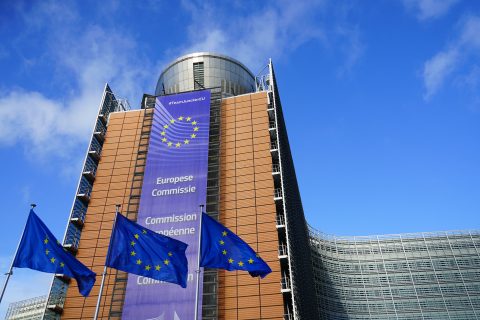Port of Rotterdam demands government support ‘comparable’ to Euro neighbours
The Port of Rotterdam is demanding that the level of support it gets from the Dutch government is on a par with that of their European port counterparts, citing Germany’s plan to cut rail track access charges as an example of what more could be done.
Ports in neighbouring countries, it claims in its half yearly report, ‘receive considerably more support’ on a structural basis from their national governments. It adds that Dutch ports are the only ports required by the European Commission to pay corporation tax, while the limit for European state aid has been raised to 150 million Euros. “In view of the importance of the port of Rotterdam and the challenges facing the port and industrial complex, support is needed that is comparable to neighbouring countries,” says the report.
Major factor
Total throughput at the Port of Rotterdam rose by 3.9 per cent during the first half of the year, with growth in eight of the ten market segments (materials transported). A major factor was the volume of containers handled, many of which go via the port’s rail infrastructure, with TEUs accounting for 9.3 per cent (10.4 per cent in tonnes) of the overall figure. Rotterdam’s share of the container sector market in comparison with other ports in its particular range, such as Hamburg and Le Havre, was 30.9 per cent, up from 29 per cent on the previous year’s corresponding period.
The report says several port-based companies announced major investments during the first half of the year, indicating business confidence in the Rotterdam port and industrial complex. But while these investments ‘consolidated the importance’ of the complex for the Dutch economy, the port’s overriding concern centres on what it calls its ‘competitive position’ in relation to its counterparts across the continent.
Concern
“While The Netherlands has the world’s best port infrastructure, and an optimal location…ports in neighbouring countries receive financial support in various ways to compensate for their geographical and infrastructure drawbacks by comparison. Rotterdam’s competitive position therefore continues to be a concern.
“For example, the Port Authority has been subject to corporation tax with effect from this year, while port companies in neighbouring countries are exempt or receive compensation for their losses. In the long term, this will put pressure on the capacity of the Port Authority to invest.
Beneficial
“European studies of financing flows between governments and port authorities are advancing only slowly, and the European Commission has raised the ‘state aid threshold’ for government investment in ports to €150 million. At the same time, payments for the use of the rail network in Germany have been halved, which is beneficial for ports in North Germany. In view of the importance for the economy and jobs, and the challenges facing the port and industrial complex (especially the energy transition), the port needs to receive support from the national government that is comparable with competing ports.”
You just read one of our premium articles free of charge
Want full access? Take advantage of our exclusive offer





